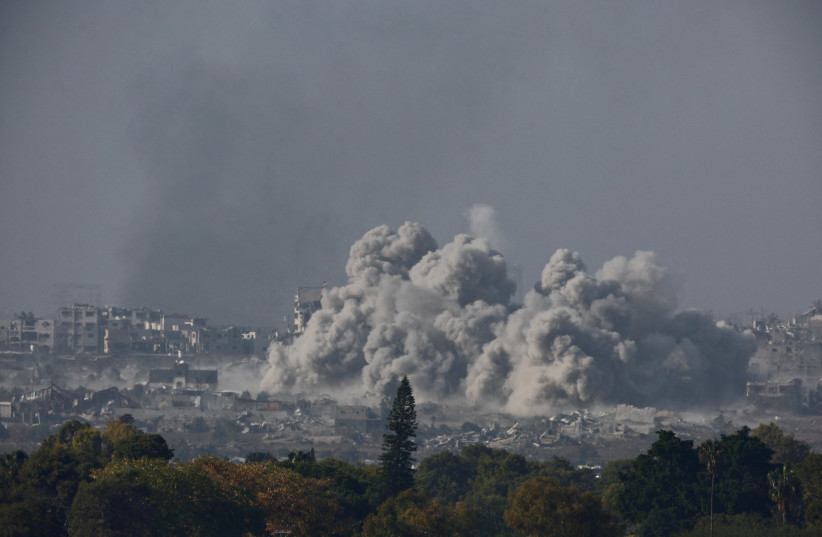Prime Minister Netanyahu’s refusal to promote discussions about Gaza’s governance postwar is concerning for the Israeli public. This refusal raises fears that the ongoing conflict with the Palestinians may persist, potentially leading to further rounds of clashes and wars. Additionally, the absence of political initiative and a realistic assessment of the situation could hinder Israel’s quest for international legitimacy, despite the consistent support from the United States.
History demonstrates that an occupation, no matter its justification, followed by uncertainty and a lack of a distinct achievable goal or political direction, often results in local resistance, guerrilla warfare, and prolonged conflicts. The lingering presence of the occupier post-conflict exposes vulnerabilities, inevitably leading to an eventual withdrawal without attaining substantial accomplishments. This pattern was evident in Israel’s involvement in Lebanon, the United States in Iraq, and the Soviet Union in Afghanistan, among other instances.
The critical phases of the exceptionally just war in Gaza might conclude soon. Israel is likely to achieve a significant portion of its military objectives, dealing substantial blows to terrorist groups and weakening the enemy’s resistance, albeit not eradicating it. The Palestinian populace, who have borne the brunt of this conflict, will face a grim reality of immense loss and dwindling hope. With Israel’s occupation and the pressing humanitarian needs of a hostile community, conditions might favor the emergence of new elements fostering the growth of a fresh and aggressive resistance.
What will Israel do when the Gaza war is over?
Alongside military efforts, instilling hope in the civilian population is crucial, offering a vision of a brighter future. Conversely, the loss of political momentum and the prolonged presence of the Israeli forces in combat zones, subjected to the anger and immense suffering of the locals, may trigger a catastrophic situation, entrenching us in the turmoil of Gaza and potentially leading to heightened violence.
As is well known, Israel withdrew from Gaza in 2005 and transferred security and civil control to the Palestinian Authority of Mahmoud Abbas. However, as a result of a military coup carried out by Hamas in 2007, Gaza became an independent state controlled by a terrorist entity that is hostile to both Israel and the Palestinian Authority. The PA has demonstrated its inability to control the territory and, in fact, has encouraged the terrorist elements to this day by transferring allowances to terrorists and educating the younger generation on the values of jihad. So, unfortunately, it is no longer part of the solution.

Despite the failure of Israel’s unilateral disengagement from the Gaza Strip and the horrific massacre on October 7, Israel does not aspire to move the residents of Gaza to another place or to revive the pre-2005 settlements for an Israeli presence in Gaza. The only direct way to ensure the success of a withdrawal from the Gaza Strip is in exchange for demilitarization and strong international supervision to prevent Gaza from turning into a terror stronghold.
THE DEVELOPMENT of this alternative, tailored to Israel’s current geopolitical conditions, involves a three-phase plan. The progression between stages hinges on the performance of the Palestinian side and their disassociation from terrorism. The sooner Palestinians embrace disarmament and prioritize educating future generations for peace – measurable through surveys and research – the quicker the transfer of responsibility for their territory and people will occur.
Below is an outline of the program’s framework:
- The preventative phase (at least one year) would focus on neutralizing the capabilities of Hamas and other terrorist organizations in the Gaza Strip with an emphasis on the demolition of terrorist infrastructure. The elimination or imprisonment and prosecution of war criminals and an illustration of the cost of the loss to the Palestinians (also in the West Bank) emphasize the potential cost of war against Israel for long-term deterrence.
- The stabilization phase (3-5 years) aims to reestablish borders and crossings, including constructing an underground fence along the Egyptian-Gaza border to prevent smuggling and restore security. An IDF withdrawal from city centers would allow international police forces entry while maintaining Israeli capabilities for localized anti-terrorism measures throughout Gaza. Simultaneously, efforts must focus on revitalizing daily life, jumpstarting the local economy, establishing a credible Palestinian leadership aligned with Israel, and supporting Gaza’s demilitarization through humanitarian aid and reconstruction plans.
- The reconstruction phase (3-5 years) involves a complete Israeli withdrawal from international borders, establishing a local political system governed by a constitution, and facilitating free and democratic elections. The creation of employment infrastructure such as industrial zones and welfare initiatives in Gaza would be funded by investors. Additionally, plans would include the implementation of desalination plants, sewage systems, and an independent power plant. This phase aims to create conditions for the establishment of seaports and airports, ensuring security supervision either by Israel or by an internationally agreed-upon body.
ISRAEL’S ATTAINMENT of these objectives hinges on robust American and international backing. Moreover, forging a courageous alliance with Arab nations, particularly Egypt and the Gulf countries, assumes pivotal significance in financing the outlined reconstruction endeavors. The underlying principle guiding Gaza’s reintegration lies in its disassociation from terrorism and the establishment of durable national infrastructure. While a decade may be required to construct the national infrastructure, the Israeli Air Force’s ability to destroy it quickly in the event of the return of Hamas should have a strong deterrent impact considering the immense destruction of the current war. The success of the program relies significantly on acknowledging the cost of potential loss juxtaposed with fostering hope as essential catalysts for progress, impacting outcomes sooner rather than later.
The writer, a reserve IDF colonel, served in the Southern Command and as an intelligence assistant to two Israeli prime ministers.
